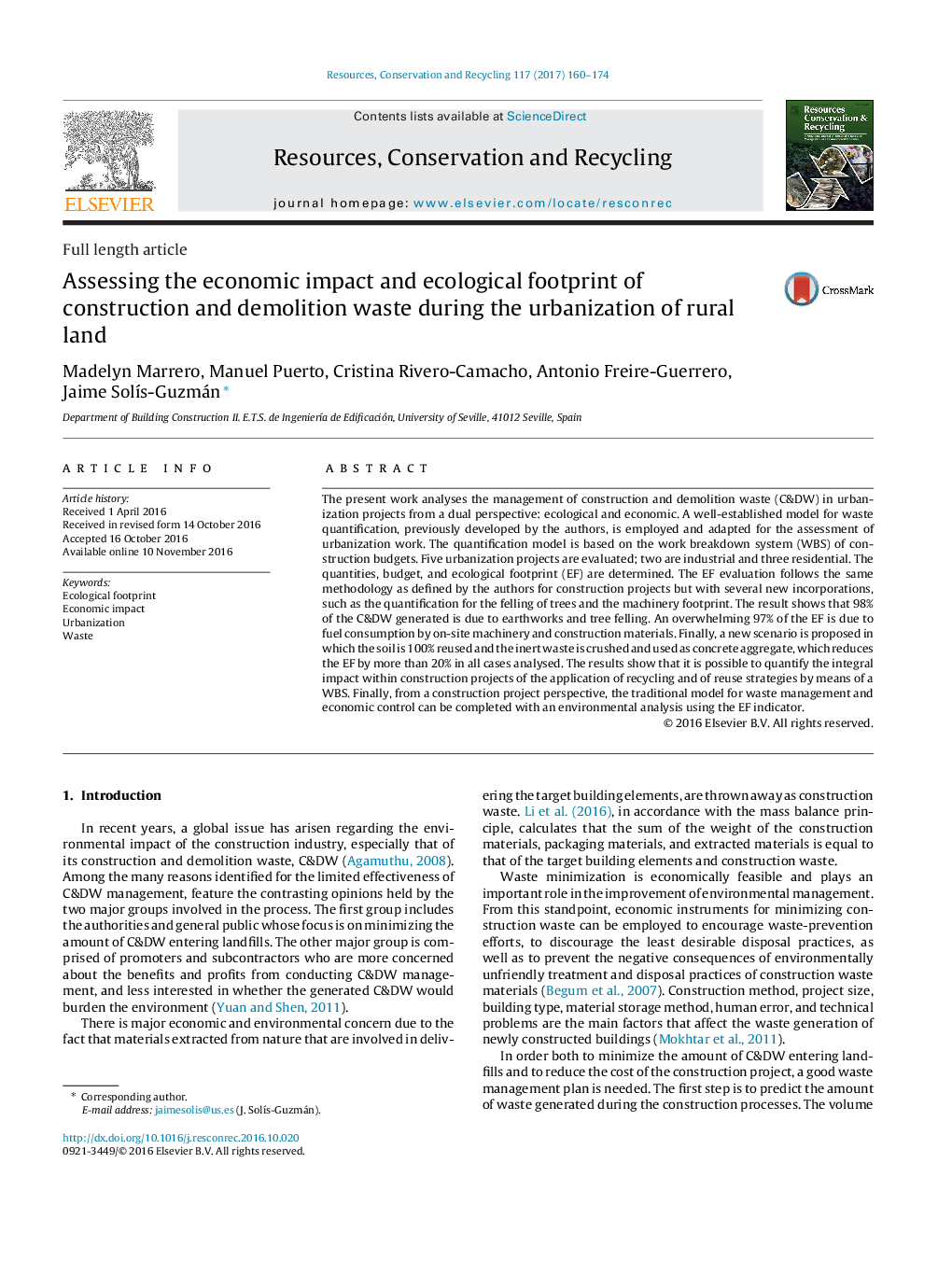| Article ID | Journal | Published Year | Pages | File Type |
|---|---|---|---|---|
| 5118896 | Resources, Conservation and Recycling | 2017 | 15 Pages |
â¢The economic impact of the C&DW in urbanization projects is analysed.â¢The ecological footprint indicator is applied to C&DW and has sensible results.â¢The quantification is based on the work breakdown system of construction budgets.â¢The result shows that 98% of the waste is due to earthworks and tree felling.â¢The ecological footprint is reduced 20% when the inert waste is 100% reused/recycled.
The present work analyses the management of construction and demolition waste (C&DW) in urbanization projects from a dual perspective: ecological and economic. A well-established model for waste quantification, previously developed by the authors, is employed and adapted for the assessment of urbanization work. The quantification model is based on the work breakdown system (WBS) of construction budgets. Five urbanization projects are evaluated; two are industrial and three residential. The quantities, budget, and ecological footprint (EF) are determined. The EF evaluation follows the same methodology as defined by the authors for construction projects but with several new incorporations, such as the quantification for the felling of trees and the machinery footprint. The result shows that 98% of the C&DW generated is due to earthworks and tree felling. An overwhelming 97% of the EF is due to fuel consumption by on-site machinery and construction materials. Finally, a new scenario is proposed in which the soil is 100% reused and the inert waste is crushed and used as concrete aggregate, which reduces the EF by more than 20% in all cases analysed. The results show that it is possible to quantify the integral impact within construction projects of the application of recycling and of reuse strategies by means of a WBS. Finally, from a construction project perspective, the traditional model for waste management and economic control can be completed with an environmental analysis using the EF indicator.
